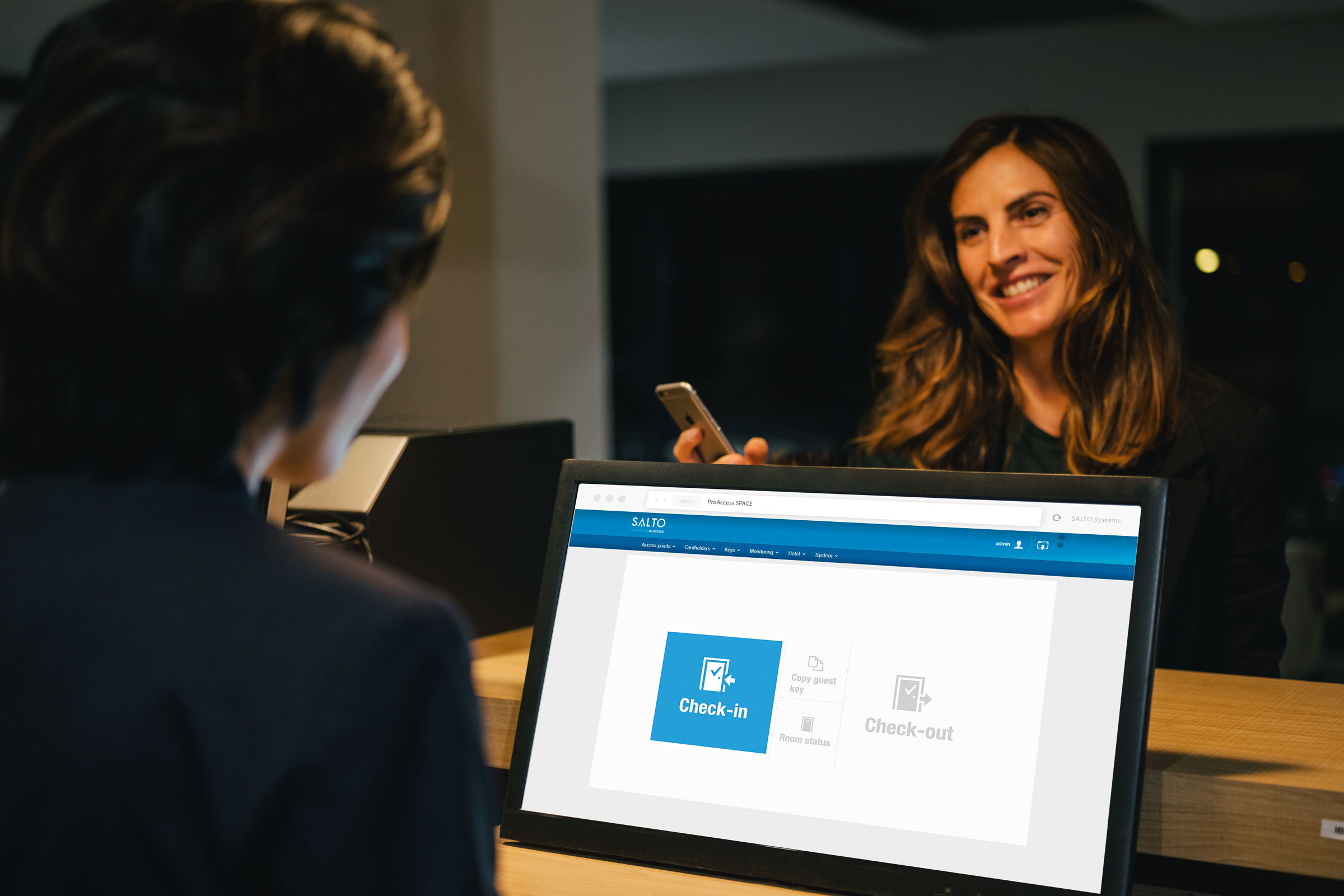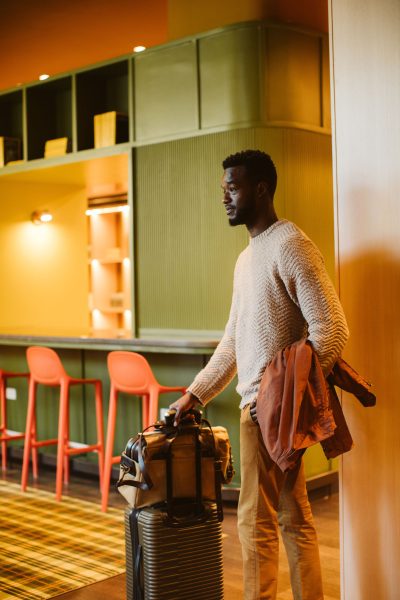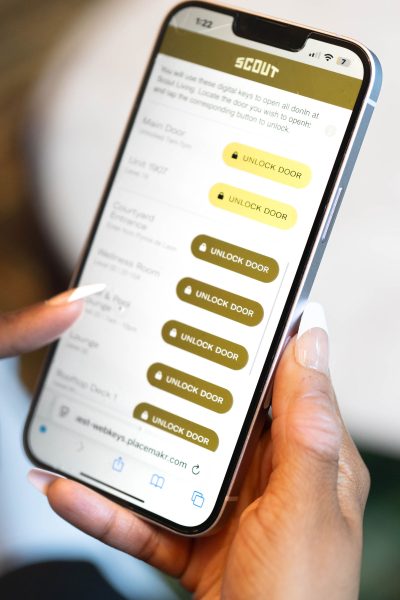Story at a glance:
- Jamestown’s Scout Living blends short- and long-term stays in a single tech-forward development.
- Salto Systems enables keyless entry through mobile links, reducing touchpoints and increasing flexibility.
- From reduced plastic waste to integrated HVAC systems, access control plays a growing role in carbon-conscious hospitality.
When is a hotel not just a hotel? When it’s designed for everyone and for everything.
That was the guiding principle behind Scout Living, a 405-unit flex hospitality concept developed by Jamestown at Ponce City Market in Atlanta. Designed to accommodate everyone from overnight guests to extended-stay residents, the property needed to deliver comfort, convenience, and control without friction.
“We’re blending hospitality along with residential in a large-scale project,” says Alexandra Kirk, senior vice president of development and construction at Jamestown. “It was really important to us to think about sustainability and to think about access control because we have both daily guests, like a traditional hotel, and long-term guests, like a traditional apartment building.”
This hybrid model required an access solution that could match its flexibility, while still meeting the project’s high standards for design and security. Jamestown found that partner in Salto.
Seamless by Design
- Inside Scout Living in Atlanta. Photo courtesy of Scout Living, Jamestown
- Jamestown integrated Flexipass, a Salto-compatible solution that lets users access rooms and amenities through a secure mobile web link, at Scout Living. Photo courtesy of Scout Living, Jamestown
Salto’s modular, app-optional access platform aligned well with the building’s goals of operational efficiency and a seamless guest experience. Instead of relying on physical key cards or requiring app downloads, Jamestown integrated Flexipass, a Salto-compatible solution that lets users access rooms and amenities through a secure mobile web link.
“They click on an email or text from the hotel, and like magic their phone becomes their key,” says Roland Smith, vertical business leader for hospitality at Salto. “The key is then stored on their phone or in their Apple Wallet, and when they want access to the building, their room, or other secure areas, they simply hold the phone near the lock.”
The result is a hospitality experience where technology stays in the background, giving guests control without complication. That simplicity was essential to supporting daily turnovers, long-term stays, coworking, and meetings. From the start the team knew a traditional front desk wouldn’t be a fit.
“Before you even arrive onsite you’re getting all the information you need—your room number, the WiFi, how to get in and out of the building,” Kirk says. “There’s no need for you to talk to someone at the front desk.”
Smith says this type of user-centric planning is becoming the standard. “When we sell, it’s a consultative sell,” he says. “We start with the guest journey. How do you operate? What do you want the experience to feel like? And then we build the access platform around that.”
The Salto platform allows properties to layer access intelligently across public, private, and back-of-house zones, all while keeping the user experience simple. “We help open the door,” Smith says. “But from there, if I’m staying at a resort, the rest of my experience should be just as smooth. That’s how you drive adoption of mobile access.”
Access as a Sustainability Lever
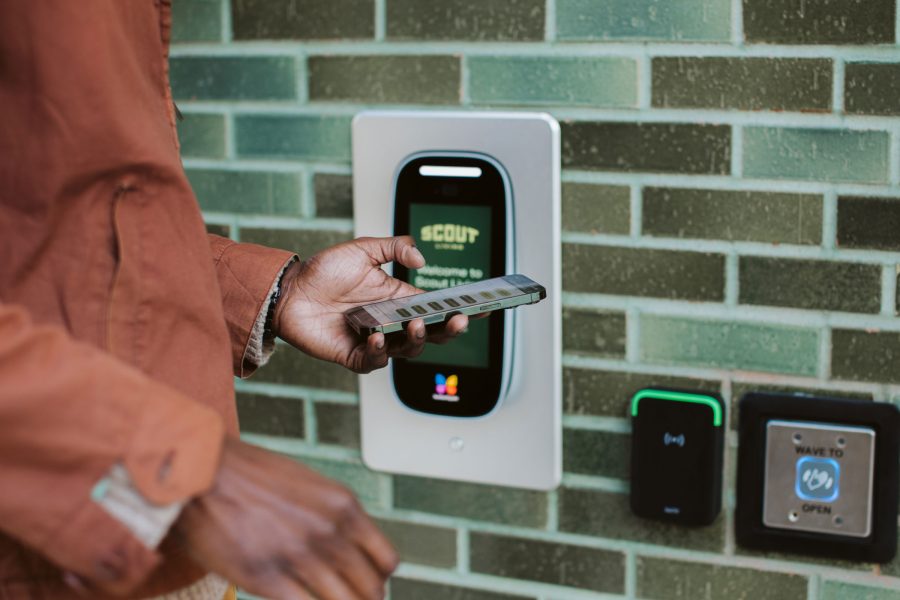
Photo by Stephany Barboza Photography, courtesy of Scout Living, Jamestown
While guest convenience was a key driver in choosing Salto, Jamestown also prioritized sustainability in both daily operations and long-term impact.
“From an operating standpoint, having a flexible and easy customer experience for access control means we’re able to be more efficient on our operating platform,” Kirk says. “The best way to bring down some of those operating costs is to make it so customers have a seamless experience, but it’s an experience that really is very easy and usually very integrated into the building technology.”
Reducing reliance on physical credentials was one immediate win. “There are several different ways your mobile device now can lead to sustainability,” Smith says, including by reducing the use of plastic from RFID credentials.
Salto offers a range of keyless options, including mobile wallet credentials, app-based keys, and over-the-air (OTA) web-keys that work via text or email links. In other words, that’s fewer plastic key cards going to landfills.
But access control can also serve as a bridge between smart buildings and energy management. “We have the capability to send data and messaging from our door or from our lock over to energy management or HVAC systems,” Smith says. “That way, after a guest does depart the room for a set period of time, it goes back to energy savings standard until a guest arrives again.”
This enables precise energy use based on real occupancy data. “We are able to send smart or intelligent data to the HVAC system so it understands the difference between a guest and a staff member,” Smith says.
For instance, a room might default back to 72°F once a guest leaves, instead of maintaining the guest’s custom setting all day. “It still remains low consumption.”
Scout’s hybrid hospitality model adds even more opportunity to fine-tune usage patterns. “We’re able to ramp up our cleaning staff and ramp it down when we’re not as busy so we’re not operationally heavy,” Kirk says. “But we’re also able to provide that hospitality experience when we need to and to dial that back when we don’t.”
Sustainability wasn’t just checking a box for either party. “Salto’s global manufacturing facilities are powered with 100% clean and renewable energy, and we are certified as carbon neutral,” Smith says. “We believe for the circular economy to thrive, companies must make the effort to find and source from manufacturers who are committed to sustainability.”
Kirk sees that kind of alignment as essential. “We’re not cutting costs; we’re really focused on minimizing extra costs,” she says. “If I’m constantly issuing new physical key cards, if I have to have lots of security to monitor what’s going on … access control allows us to do all of that more efficiently.”
The Future of Seamless Stays
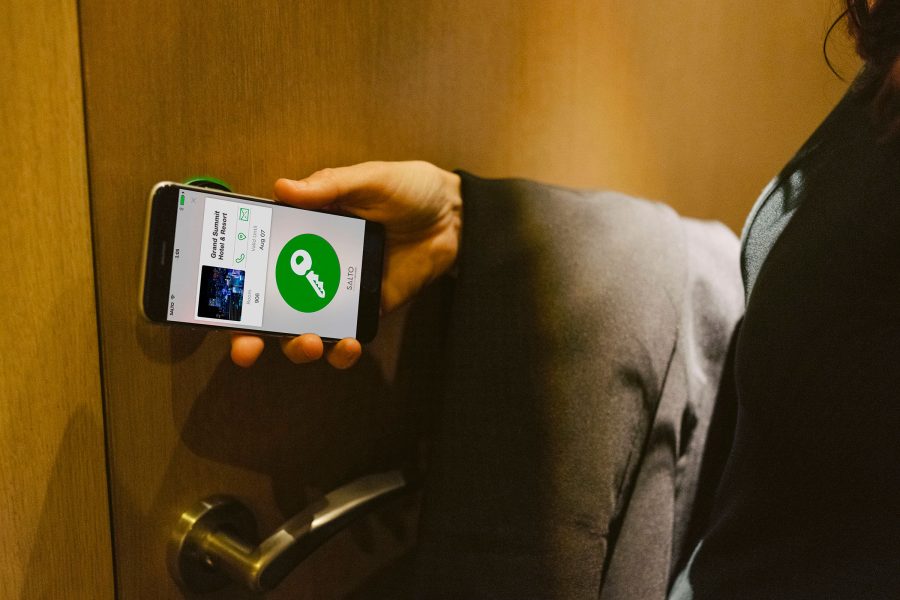
Photo courtesy of Salto
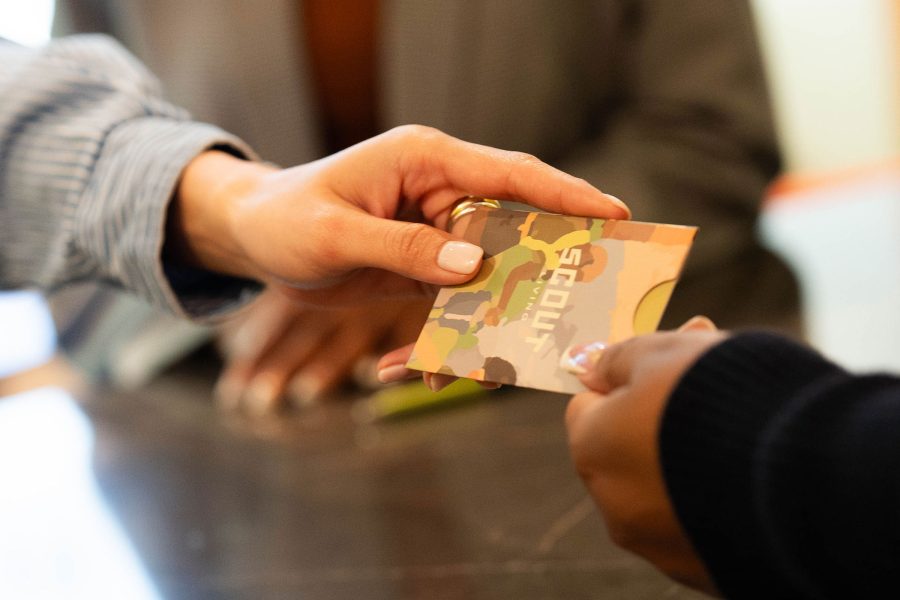
Photo courtesy of Scout Living, Jamestown
Looking ahead, both Jamestown and Salto see access control continuing to evolve as a tool for personalization, sustainability, and a sense of control for guests.
“The future is no longer the tech in the room or the building but the stay itself,” Smith says. “That journey is about removing friction points and making the entire experience effortless for the guest.”

